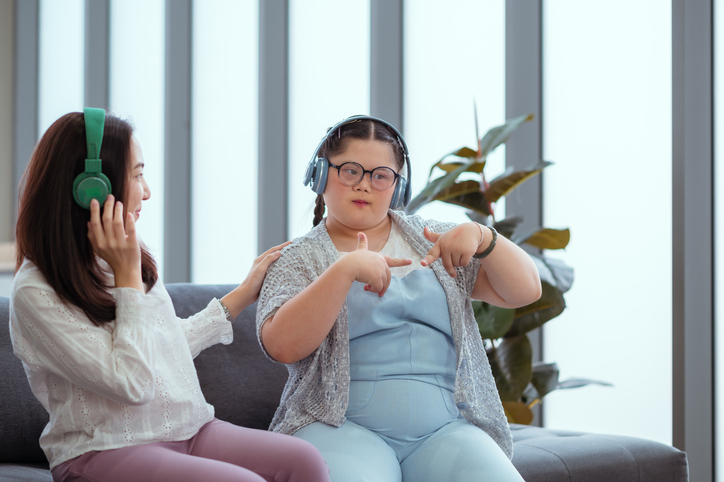This is a difficult question, one that some families avoid as long as possible. Difficult topics are often put off, like writing a will, feeling there’ll be time enough, someday. A not uncommon assumption is that an extended family member will step in and take over the care of the disabled adult. But what if no one is there to step in?
According to the Centers for Disease Control (CDC), about 1 in 4 Americans have a disability, equaling approximately 61 million individuals. The National Disability Navigator complied a fact sheet estimating that 7 million people in the US have intellectual and developmental disabilities. The barriers to independence are many for these individuals, as evidenced by another CDC statistic:
- Only 14.7 percent of people with intellectual and developmental disabilities are employed.
Developing a path to independence and a self-supporting lifestyle is difficult at best and currently out of reach for many adults with intellectual and developmental disabilities. Training, and a little on the job support can create the right work environment. Unfortunately, discrimination and limited opportunities still exist. Which is one of the reasons why it is estimated that 75% of intellectually disabled adults live with their parents or a family member. According to Grantmakers in Aging, nationwide, half of caregivers are older than 50, and 10% are 75 or older.
What options are available when no family member is able to care for an intellectually disabled adult?
Less than a century ago, individuals with developmental disabilities were routinely funneled into institutions, often from birth. There, they would be unseen and unheard. Parents were encouraged to place their children in the care of these institutions, so as not to take away from their other parental and life duties. The burden of care for individual families was seen as too great a sacrifice.
Those institutions often failed to provide the care needed, while some were found to be abusive and inhumane. A movement to close them culminated in a landmark Supreme Court ruling in 1999. That decision in Olmstead vs. L.C. found that under the Americans with Disabilities Act (ADA), the segregation of individuals with disabilities is unjustified and a form of unlawful discrimination. This court ruling opened the doors for a number of less restrictive living situations.
However, before decisions can be made about where a person will live, it must be determined who will take responsibility for a person who can’t fully care for themselves. Unless a plan is in place, an individual with intellectual and developmental disabilities can end up in a conservatorship. For the protection of an intellectually disabled adult with no one to care for them, the state steps in and designates someone to act on their behalf. This is also a process that can be put in motion through a will or trust by the family, as part of establishing a chosen person as guardian for their child or sibling. A limited conservatorship is reviewed at the end of year one and every two years thereafter, in California. The conservator is responsible for arranging for the needs of the disabled adult and include meals personal care, housing, health care, education, housekeeping, recreation, and transportation.
What is included in planning for the future needs of a developmentally disabled adult?
Contingency planning is at the top of the list. Relying on family members may seem the best solution. Yet, in today’s changing world, it would be wise to explore other options as well. Families will want to consider setting up a trust to ensure that any money left to the individual is available to pay for things that public funding will not cover. Secure housing is also an issue.
A Trust Can Own a Home
If your family is fortunate in owning your own home, that home can be placed in trust to benefit your disabled adult child. It could be utilized as a home to live in or could be used to pay for an apartment. This is a complicated option and one that would require oversight and a number of added responsibilities. Getting advice from a financial advisor and an estate planning attorney are the first steps.
Supportive Group Homes
Decades ago, parents of children with intellectual and developmental disabilities banded together to purchase homes in their communities to offer an alternative to institutions. Care-providers offered supportive services for the group homes. Nonprofits also purchased or rented single-family homes to house small numbers of individuals with disabilities. These community-based homes come in many configurations, levels of support and payment options. The movement is still growing today, since it offers real opportunities for disabled adults to live more socially active lives than they might in their parents’ homes. Older parents can feel confident that their adult children will be cared for when they no longer can provide care.
Section 8 Vouchers
Section 8 housing vouchers are available in some localities. Individuals need to qualify financially and demonstrate a higher level of independence and ability to care for themselves. In many communities, the waiting list for these limited rentals is long. As of October 2022, all section 8 waiting lists in the City of San Francisco are closed.
Intermittent Care Facilities
The North Bay Regional Center offers a detailed description of four types of intermittent care facilities in California for adults with intellectual and developmental disabilities, designated by the frequency and level of care needed. Intermediate Care Facilities for Individuals with Developmental Disabilities (ICF/IID) are health facilities licensed by the Licensing and Certification Division of the California Department of Public Health (CDPH) to provide 24-hour-per-day residential services. There are four types of ICF/IID’s, which primarily provide services to regional center clients with developmental disabilities.
Assisted Living Facilities
Most of us think of assisted living as housing for the elderly. In fact, people of varying ages may require assisted living. Certain disabilities may make living in an apartment within a complex providing support services more manageable. Individuals have their own small apartments and can do most daily living tasks but need some assistance.
Skilled Nursing Facilities
These facilities are designed for individuals who need around the clock, 24/7 skilled medical care. This can be due to an ongoing illness, or one that causes increasingly debilitating health deterioration, like ALS or even Alzheimer’s. These facilities provide the highest level of care and are very expensive.
As with so much in life, planning can help ease the anxiety and trauma that often accompanies change. Fortunately, more resources exist than were available before to assist families with exploring the options to create a secure future for their loved ones.
Please consider contacting us if you have concerns or questions. Helpers Community has a long history of working with adults with intellectual and development disabilities and their families.



Hello, my name is Robert I am 60yrs old . When I was 40 I had an accident
And got a incomplete spinal cord injury. I have been on SSI ever since
I can walk though I have limited availability on my right side
I am afraid of my safety and am home less I have no family what kind of Housing should I seek. I only receive
$914.00 per month. Thank you
Hello Robert, thank you for your comment. Unfortunately Helpers Community, does not provide direct services or advice to adults with intellectual and developmental disabilities. Helpers Community is an educational and informational advocate for the community. Helpers enables other non profit service providers to have a greater impact with the services they provide to their program participants. We suggest you reach out to your local social services entities for assistance.